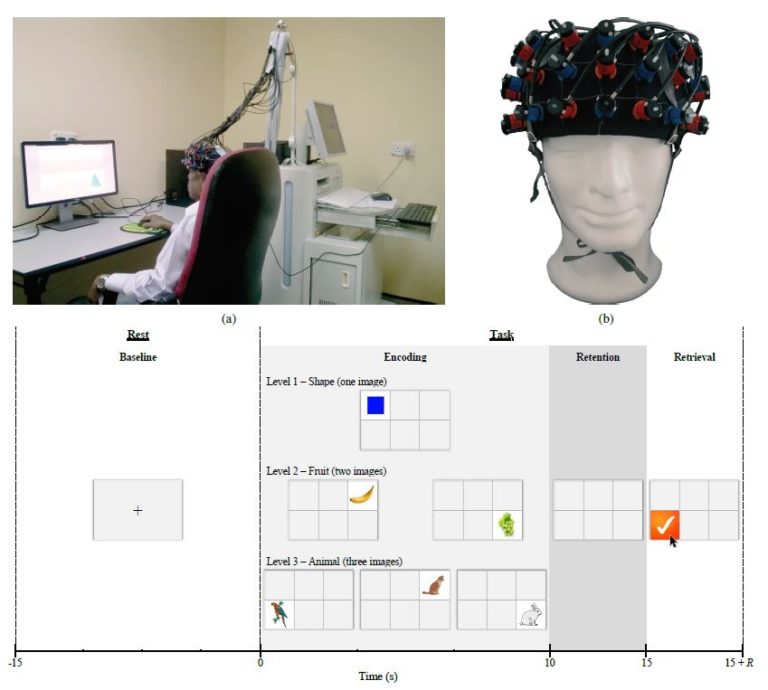
Alzheimer’s disease is characterized by the progressive deterioration of cognitive abilities particularly working memory while mild cognitive impairment (MCI) represents its prodrome. It is generally believed that neural compensation is intact in MCI but absent in Alzheimer’s disease. This study investigated the effects of increasing task load as a means to induce neural compensation through a novel visual working memory (VSWM) task using functional near-infrared spectroscopy (fNIRS). The bilateral prefrontal cortex (PFC) was explored due to its relevance in VSWM and neural compensation. A total of 31 healthy controls (HC), 12 patients with MCI and 18 patients with mild Alzheimer’s disease (mAD) were recruited. Although all groups showed sensitivity in terms of behavioral performance (i.e. score) towards increasing task load (level 1 to 3), only in MCI load effect on cortical response (as measured by fNIRS) was significant. At lower task load, bilateral PFC activation did not differ between MCI and HC. Neural compensation in the form of hyperactivation was only noticeable in MCI with a moderate task load. Lack of hyperactivation in mAD, coupled with significantly poorer task performance across task loads, suggested the inability to compensate due to a greater degree of neurodegeneration. Our findings provided an insight into the interaction of cognitive load theory and neural compensatory mechanisms. The experiment results demonstrated the feasibility of inducing neural compensation with the proposed VSWM task at the right amount of cognitive load. This may provide a promising avenue to develop an effective cognitive training and rehabilitation for dementia population.

